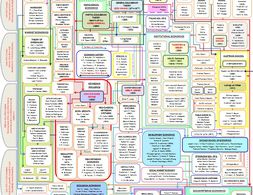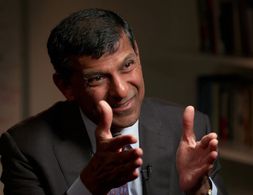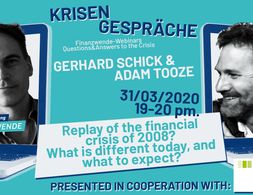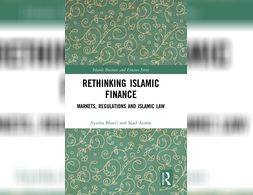✕
459 results
Focusing on Kenya’s path-breaking mobile money project M-Pesa, this book examines and critiques the narratives and institutions of digital financial inclusion as a development strategy for gender equality, arguing for a politics of redistribution to guide future digital financial inclusion projects.
Foundational economy is the most important concept you have never heard of. The foundational encompasses material utilities like water, gas and electricity and providential services like education, health and care. Taken together, these services matter economically and politically because they are the collectively consumed infrastructure of everyday life, the basis of civilization and should be citizen rights.
This lecture acts as an introduction to the Macroeconomics course (ECON 720) at John Jay College. Throughout the lecture, the classical and Keynesian conceptions of macroeconomic relationships are contrasted.
Noneconomists often think that economists' approach to race is almost exclusively one of laissez-faire. Racism, Liberalism, and Economics argues that economists' ideas are more complicated.
The authors show how consumers, business, the Federal Reserve, and government take into account what's going on around them to make critical decisions like buying new products, building new factories, changing interest rates, or setting budget goals. The book provides a clear roadmap to understanding the whole story behind the global economy.
Dani Rodrik reflects in this book on important questions about how economics works and what might be wrong with it. He points out flaws and weakness of the discipline, but also argues that certain criticisms which have brought forward against are without merit. His central point is that there is not just one economic model, but a variety of them and it is important to apply judgment when selecting the most suitable one for a particular situation.
Rethinking Regulation of International Finance encapsulates the most important aspects of the development and operation of the international financial system. This book questions the fundamental basis of the existing international financial architecture (soft law) and explores the need for a compliance-based model based on legitimacy of regulations and accountability of the regulatory bodies in international financial stability.
How long the COVID-19 crisis will last, and what its immediate economic costs will be, is anyone's guess. But even if the pandemic's economic impact is contained, it may have already set the stage for a debt meltdown long in the making, starting in many of the Asian emerging and developing economies on the front lines of the outbreak.
This essay focuses on the sources of government revenue within the Middle East and North African (MENA) region and proposes the implementation of a regional tax reset through increased taxation and tax reforms, deregulation in the private sector and economic diversification to reduce macroeconomic volatilities caused by the hydrocarbon industry.
In this lecture Mirowski claims that a good critique of and alternative to neoclassical economics should focus on microeconomics. In addition, he claims that mainstream economics is not about a specific "human nature", instead the understanding of markets (partially based on Hayek) is of special importance. As an alternative Mirowski proposes institutionalist economics that builds upon how markets work nowadays (e.g. links to computer science).
This multimedia dossier is part of the series „Understanding Finance“ by Finance Watch and presents a description and critical review of financial markets and their functions. It furthermore discusses recent developments, as high frequency trading.
Central banking is anything but clear-cut. As this webinar with Benjamin Braun demonstrates, the standard view of central banks as independent public entities that govern financial markets and "print" money is at least partially misleading.
As seen with the United Nations significant promotion of the Sustainable Development Goals (SDGs) in the past few years, the issue of global development is of growing concern to many international organizations. As humanity continues to become more interconnected through globalization, the inequalities and injustices experienced by inhabitants of impacted countries becomes increasingly clear. While this issue can be observed in the papers of different types (e.g., different schools of thought) of economists throughout the world, the work of behavioral and complexity economists offer a unique, collaborative perspective on how to frame decisions for individuals in a way that can positively reverberate throughout society and throughout time.
Exploring Economics, an open-source e-learning platform, giving you the opportunity to discover & study a variety of economic theories, topics, and methods.
For intermediate courses in economics. A Unified View of the Latest Macroeconomic Events Macroeconomics, Blanchard presents a unified, global view of macroeconomics, enabling readers to see the connections between goods, financial markets, and labor markets worldwide.
Poster of the different schools of thought made by Sergio A. Berumen. From the Greeks to late 20th and beginning of the 21th century.
Max Krahé explains the role of economic planning for a green transition.
Use economic models to learn how prices and markets benefit society in the face of scarcity and then apply those models to analyze policy Jonathan Gruber edX Massachusetts Institute of Technology
In this video, Rajan Raghuram highlights ‘A hereditary Meritocracy’. He identifies the “limitations” with the current economic systems of democracy and markets.
Why is it that some countries become rich while others remain poor? Do markets require regulation to function efficiently? If markets offer an efficient way of exchanging goods, why do individuals even create firms?
Central banks have once again proven to be the first line of defense in crisis-ridden times. With their far reaching actions they prevented the world from experiencing a collapse of financial markets on top of the severe health and economic crisis caused by Covid-19.
In this radio interview, Philip Mirowski, author of the book "Never Let a Serious Crisis Go to Waste" presents several differences between neoclassical economics and neoliberalism. Apart from a historical outline, Mirowski primarily discusses different perceptions of markets and the role of the state. Mirowski further reflects on the role think tanks ("part of the "neoliberal thought collective") and the entrepreneurial self (the "neoliberal agent") in the spreading and fostering of the neoliberalism.
For some days, global financial markets are in turmoil. Central banks and governments are dealing with the unfolding crisis on a daily basis with seemingly u...
This is an introductory level core course in macroeconomics for those expecting to take further courses in economics. It provides a theoretical and applied approach of introductory macroeconomics, with an international perspective and applications to account for the growing importance of the global economy and the rising openness of economies.
This article provides a contextual framework for understanding the gendered dimensions of the COVID-19 pandemic and its health, social, and economic outcomes. The pandemic has generated massive losses in lives, impacted people’s health, disrupted markets and livelihoods, and created profound reverberations in the home. In 112 countries that reported sex-disaggregated data on COVID-19 cases, men showed an overall higher infection rate than women, and an even higher mortality rate. However, women’s relatively high representation in sectors hardest hit by lockdown orders has translated into larger declines in employment for women than men in numerous countries. Evidence also indicates that stay-at-home orders have increased unpaid care workloads, which have fallen disproportionately to women. Further, domestic violence has increased in frequency and severity across countries. The article concludes that policy response strategies to the crisis by women leaders have contributed to more favorable outcomes compared to outcomes in countries led by men.
This short video visualizes the destabilizing effects financial markets can have on food prices, based on a paper by Jayati Ghosh. It introduces and explains the idea of future contracts and how those are used to speculate with basic food stuffs. After establishing the concepts, the video sketches out how the increase in those practices resulted in a substantial rise and later collapse of food prices around 2008 with severe consequences for many developing countries and their people.
After completing the module, participants should have gained a basic understanding of the economic school of thought referred to as "Modern Monetary Theory" and should be able to analyze the monetary processes at play in the economy and evaluate fiscal and monetary policy decisions from an MMT-perspective.
The goal of the course is to deepen students’ understanding of the Latin American development experience by viewing it through a gender lens.
The Atlas of Economic Complexity is an award-winning data visualization tool that allows people to explore global trade flows across markets, track these dynamics over time and discover new growth opportunities for every country.
Understanding the financial crisis from four very different economic theories: Social Economics, Institutional Economics, Post Keynesian economics.
Islamic finance's phenomenal growth owes to the Shariah compliant nature of its financial instruments. Shariah forbids the charging of interest (Riba) and instead promulgates risk-sharing and trade-based modes of financing. The Islamic financial industry has been subject to both critique and admiration. Critics argue that Islamic instruments (bearing debt-based structures) differ from their conventional counterparts only in legal lexicon and not in economic impact.
The world of economics is changing. Years of turmoil in the global economy mean that nothing will ever be quite the same again. This is the starting point and theme of this radically revised Economist books classic.
We use cookies on our website. Click on Accept to help us to make Exploring Economics constantly better!





























